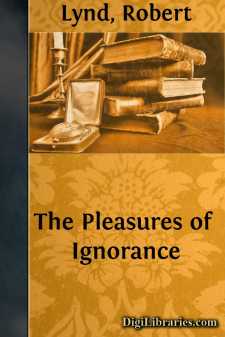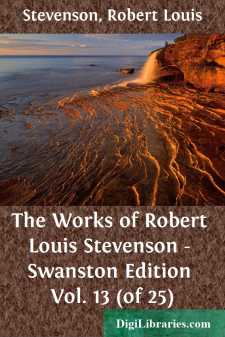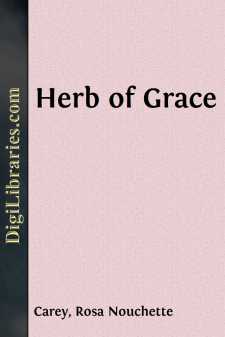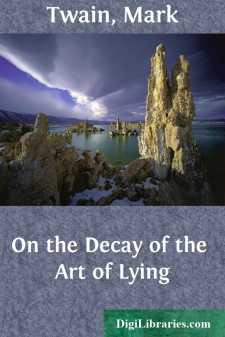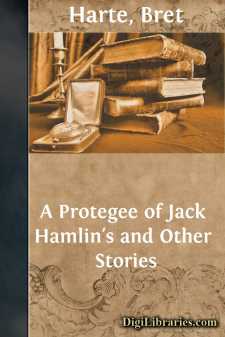Literary Collections
- American 84
- Ancient, Classical & Medieval 14
- Asian 1
- Australian & Oceanian 1
- Canadian 55
- Continental European 121
- English, Irish, Scottish, Welsh 179
- Essays 160
- General 24
- Letters 46
- Middle Eastern 1
Literary Collections Books
Sort by:
by:
Robert Lynd
I THE PLEASURES OF IGNORANCE It is impossible to take a walk in the country with an average townsman—especially, perhaps, in April or May—without being amazed at the vast continent of his ignorance. It is impossible to take a walk in the country oneself without being amazed at the vast continent of one's own ignorance. Thousands of men and women live and die without knowing the difference...
more...
IN THE MARQUESAS It was about three o’clock of a winter’s afternoon in Tai-o-hae, the French capital and port of entry of the Marquesas Islands. The Trades blew strong and squally; the surf roared loud on the shingle beach; and the fifty-ton schooner of war, that carries the flag and influence of France about the islands of the cannibal group, rolled at her moorings under Prison Hill. The clouds...
more...
CHAPTER I Our adventures hover round us like bees round the hive when preparing to swarm.—MAETERLINCK. From boyhood Malcolm Herrick had been a lover of the picturesque. In secret he prided himself on possessing the artistic faculty, and yet, except in the nursery, he had never drawn a line, or later on spoilt canvas and daubed himself in oils under the idea that he was an embryo Millais or Turner....
more...
CHAPTER I If I were asked what, in my opinion, distinguishes the thought of the present day from that of a previous generation, I should feel inclined to say, it is the fact that people are beginning to realize that Thought is a power in itself, one of the great forces of the Universe, and ultimately the greatest of forces, directing all the others. This idea seems to be, as the French say, "in the...
more...
by:
George Meredith
CHAPTER I Some years ago a book was published under the title of "The Pilgrim's Scrip." It consisted of a selection of original aphorisms by an anonymous gentleman, who in this bashful manner gave a bruised heart to the world. He made no pretension to novelty. "Our new thoughts have thrilled dead bosoms," he wrote; by which avowal it may be seen that youth had manifestly gone from...
more...
The Chimney-Pots. y windows look across the roofs of the crowded city and my thoughts often take their suggestion from the life that is manifest at my neighbors' windows and on these roofs. Across the way, one story lower than our own, there dwells "with his subsidiary parents" a little lad who has been ill for several weeks. After his household is up and dressed I regularly discover him...
more...
by:
Mark Twain
Observe, I do not mean to suggest that the custom of lying has suffered any decay or interruption—no, for the Lie, as a Virtue, A Principle, is eternal; the Lie, as a recreation, a solace, a refuge in time of need, the fourth Grace, the tenth Muse, man's best and surest friend, is immortal, and cannot perish from the earth while this club remains. My complaint simply concerns the decay of the...
more...
by:
George Meredith
THE WHITE ROSE CLUB In those lusty ages when the Kaisers lifted high the golden goblet of Aachen, and drank, elbow upward, the green-eyed wine of old romance, there lived, a bow-shot from the bones of the Eleven Thousand Virgins and the Three Holy Kings, a prosperous Rhinelander, by name Gottlieb Groschen, or, as it was sometimes ennobled, Gottlieb von Groschen; than whom no wealthier merchant bartered...
more...
by:
Bret Harte
A PROTEGEE OF JACK HAMLIN'S.I.The steamer Silveropolis was sharply and steadily cleaving the broad, placid shallows of the Sacramento River. A large wave like an eagre, diverging from its bow, was extending to either bank, swamping the tules and threatening to submerge the lower levees. The great boat itself—a vast but delicate structure of airy stories, hanging galleries, fragile colonnades,...
more...
by:
Wilkie Collins
CHAPTER I. THE GOVERNOR EXPLAINS. At the request of a person who has claims on me that I must not disown, I consent to look back through a long interval of years and to describe events which took place within the walls of an English prison during the earlier period of my appointment as Governor. Viewing my task by the light which later experience casts on it, I think I shall act wisely by exercising...
more...


